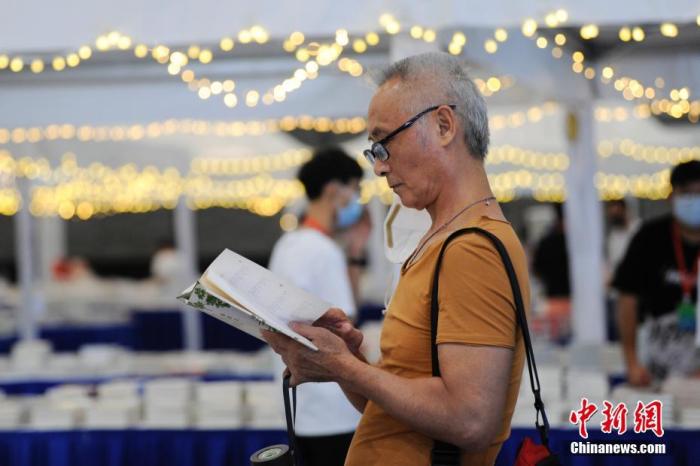(Observation of the Two Sessions) Bookstores compete to transform and seek change Are the Chinese public getting closer to reading?
China News Service, Beijing, March 9th. Title: Bookstores are competing to transform and seek change. Are Chinese people getting closer to reading?
Author Chen Xiangyu Song Yusheng
Wandering the mall, I met a bookstore around the corner.
In recent years, many well-known physical bookstores have settled in large-scale commercial centers, which have become almost "mascots". Is the Chinese public getting closer to reading?
During the National People's Congress and the People's Republic of China, many delegates and committee members worked hard to make suggestions for the social public space and add "the fragrance of books" to life.
A bookstore in Changchun became popular online due to its unique decoration, attracting many citizens to read and buy books.
Photo by Zhang Yao
"The combination of bookstores and commercial real estate has formed a sense of contrast, but more and more bookstores are appearing in this model, which shows that the market and the public's demand for and emphasis on culture is constantly increasing." Wan Wan, member of the National Committee of the Chinese People's Political Consultative Conference Jie said.
"This is a good thing." Pan Kaixiong, a member of the National Committee of the Chinese People's Political Consultative Conference and former vice president of China Publishing Group, said in an interview with China News Agency that the increased "sense of existence" of bookstores will make the whole society more learning atmosphere.
This year's government work report again mentions "Advocating Reading by All".
Since 2014, this is the eighth consecutive time that the "National Reading" has been written into the government work report.
In 2016, China's first national-level "Reading for All" plan was issued.
In fact, since "Internet reading" has penetrated into life with the Internet, physical bookstores have fallen into a bitter battle.
Shi Hanji, a member of the National Committee of the Chinese People's Political Consultative Conference and chairman of Hong Kong Hanrong Bookstore, said frankly that bookstores in Hong Kong and the mainland are facing the same test. .
The citizens are buying books.
Photo by China News Agency reporter Zhang Yazi
In response to challenges, bookstores are also changing.
In terms of business content, common attempts are selling coffee, light meals, and cultural and creative products, and some offline activities such as holding book clubs and signing sales; in terms of business model, some choose to cooperate with online bookstores, and some enter the gate of shopping malls.
These new attempts have allowed people to walk into the bookstore not just to pick a book, but to have more experience options.
Has the physical bookstore survived the winter?
Shi Hanji believes: "It takes longer time to observe the market, but it does not prevent these attempts from exploring the development possibilities for the future of the bookstore and book publishing industry."
It is proposed in the draft of the "14th Five-Year Plan" and the 2035 long-term goal outline that are being submitted for review to further promote the reading of the whole people and build a "literary China."
The delegates and committee members gave many suggestions.
Lin Yang, a member of the National Committee of the Chinese People's Political Consultative Conference and former editor-in-chief of the China Art Publishing Corporation, proposed the establishment of a "National Reading Festival."
Liao Huage, deputy to the National People's Congress and vice chairman of the Henan Provincial Writers Association, suggested that relevant media and related cultural and artistic units continue to actively advocate and organize reading activities to lead the reading and love of classics.
Readers read books in a bookstore in Nanning, Guangxi.
Photo by China News Agency reporter Yu Jing
Wan Jie said that no matter whether economic construction or cultural construction, it will not happen overnight. Constant efforts are needed to increase places and platforms for reading exchanges. With sufficient places and atmosphere, there will be more and more readers.
Now, there are many parents and children in the bookstore.
This is a good phenomenon, and children are the future of society.
In addition, he pointed out that city managers are also an important part.
For example, in Japan, books are provided everywhere in the subway, making reading truly a way of life.
(Finish)

